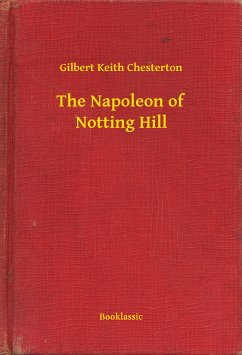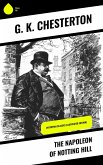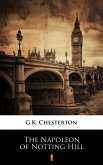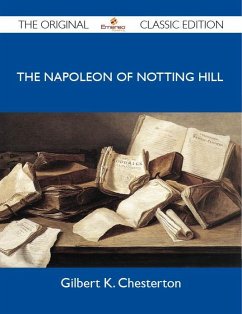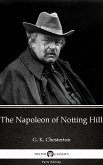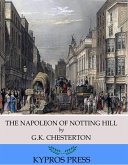Though the novel deals with the future, it concentrates not on technology nor on totalitarian government but on a government where no one cares what happens, comparable to Fahrenheit 451 in that respect.
The dreary succession of randomly selected Kings of England is broken up when Auberon Quin, who cares for nothing but a good joke, is chosen. To amuse himself, he institutes elaborate costumes for the provosts of the districts of London. All are bored by the King's antics except for one earnest young man who takes the cry for regional pride seriously - Adam Wayne, the eponymous Napoleon of Notting Hill.
While the novel is humorous (one instance has the King sitting on top of an omnibus and speaking to it as to a horse: "Forward, my beauty, my Arab," he said, patting the omnibus encouragingly, "fleetest of all thy bounding tribe"), it is also an adventure story: Chesterton is not afraid to let blood be drawn in his battles, fought with sword and halberd in the London streets, and Wayne thinks up a few ingenious strategies; and, finally, the novel is philosophical, considering the value of one man's actions and the virtue of respect for one's enemies.
Dieser Download kann aus rechtlichen Gründen nur mit Rechnungsadresse in A, B, BG, CY, CZ, D, DK, EW, E, FIN, F, GR, H, IRL, I, LT, L, LR, M, NL, PL, P, R, S, SLO, SK ausgeliefert werden.

